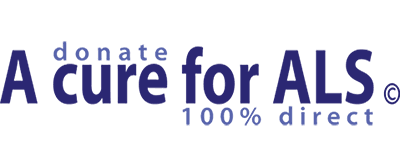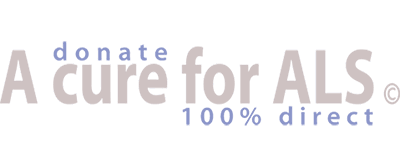Advanced will directives for pALS
31-07-2007
INTRODUCTION
Different terms are used, mostly interchangeable, to describe advanced directives. For example terms such as advanced declarations, will to live, give the power of attorney, give this power to a lawyer, lawyers of healthcare, give the power of attorney to a lawyer concerning wellbeing (power); advanced healthcare directives, continuing power of attorney, medical directives, executive decisions, power of attorney of healthcare, biological declaration of intent, executive healthcare guidelines. These are some terms that are used.
All these terms are used to discuss advanced directives. But what do they exactly mean with the term advanced directives (guidelines). It’s a way to let others know what type of care you’d like to receive, when it’s no longer possible to make decisions yourself or when you’re incapable to communicate about these decisions with others.
This isn’t unique to ALS/MND but it has a significant relevance to ALS/MND.
Why should we be concerned with this?
The World Medical Association’s Declaration of Lisbon concerning patient rights says that: “when the patient is no longer conscious, can no longer communicate, there is no legally appointed representative available and a medical intervention is urgently needed, if they can’t suspect the will of the patient except when it’s obvious and on top of that without reasonable doubt based on the patient’s preceding certain expression or conviction that he or she would refuse the intervention in that situation.”
ADVANTAGES OF ADVANCED DIRECTIVES
There are different advantages of having advanced directives.
First and foremost it lets people know about your wishes. It gives you the opportunity to rest assured that everyone is aware of your feelings or opinion about medical interventions and later needs or demands. That way you are reassured that you won’t get treatment you don’t want, when you can’t tell the doctor about your wishes anymore.
It can ease pressure on family and friends because they are fully aware of your wishes and if they have to make a decision they’ll do so from an informed position.
Also knowing what you want in the future, helps the doctors make the right decision in difficult circumstances. It allows the possibility to discuss death and things concerning life’s ending. Which is otherwise difficult to start and discuss.
The most important thing, especially for ALS/MND, is that it gives you the possibility to remain in control.
Generally speaking advanced directives are used to refuse certain treatments and interventions. Such as when a treatment has unwanted side-effects or doesn’t improve the quality of life, but it can also be used to express the patient’s wish to consider trying a new suited method that can be developed.
LIMITATIONS OF ADVANCED DIRECTIVES
They can’t be used to request things that are illegal.
They can’t be used to request euthanasia.
They can’t be used to request special or inappropriate treatments or interventions.
In general they can’t be used to refuse basic care such as hygiene, and orally receiving food or drinks.
TYPES OF ADVANCED DIRECTIVES
The most used terms that are often utilized can be classified in three types of advanced directives. Type will, type power of attorney of healthcare / lawyer and type medical directives.
Type will:
This is usually a written plan that confirms your wishes concerning future care, or in general or only related to specific situations and circumstances.
In some countries this term includes advanced directives when your wishes aren’t written down but verbally expressed.
Generally speaking, either written or verbal, the declaration you made needs to have a witness. Whether this type of advanced directives is legal in your country or not, it gives you the opportunity to provide a clear view of your intentions, purposes concerning your wishes and this can help doctors make a decision about the care they either do or don’t apply.
Type power of attorney of healthcare/lawyer:
With this advanced directive you appoint someone else who will be held responsible to express your wishes and make your decisions about future care. Because you put a large part of your power and control in someone else’s hands, this type of advanced directives demands, including the terms continuing power of attorney of a lawyer, power of attorney concerning wellbeing of a lawyer, power of attorney for healthcare, and so on, that some shape of legal procedures need to be followed. In some kind of form and confirmed by a notary and filed with the suited authorities.
Type medical directives:
This includes the term DNR, or the “Do Not Resuscitate orders” which will be registered in the medical file.
GENERAL REMARKS
An advanced directive only reflects the wish of a person at the time it’s made, and different circumstances, such as advancement in medical science and available treatments can change after a while. For these reasons people are encouraged to make sure to regularly adapt and revise their wishes and destroy preceding versions.
When an advanced directive is made, you should talk about it with the family and doctor and let the discussions about this remain open. The more people who know about your wishes, the better, so that they can speak in your name when the time has come.
In most cases advanced directives don’t include complicated documents. In many countries it is a handwritten document that sufficiently declares your wishes. In some countries and states specific formalities need to be completed so the directive will be legally recognized.
The legal status and execution of advanced directives vary in each country and state. It’s better to check the situation in your country. Because of this no definitive explanation of the terms and legal status of advanced directions can be published.
Translation: Sara De Roy
Source: www.alsmndalliance.org


